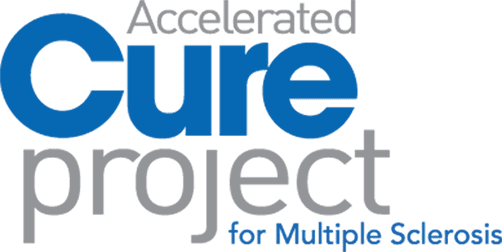Many personal traits and aspects of daily living can affect your health and wellbeing. These factors are referred to as social determinants of health (SDH). A number of SDH influence the course and outcome of MS, but more research is needed to fully understand their impact. The iConquerMS Research Inclusion Diversity and Equity (RIDE) Council is working to make MS research fully inclusive, which will shed light on MS outcomes in people from different racial, ethnic, and social groups.

According to the World Health Organization, “The SDH are the non-medical factors that influence health outcomes. They are the conditions in which people are born, grow, work, live, and age, and the wider set of forces and systems shaping the conditions of daily life.”
SDH include individual characteristics, such as gender, race and ethnicity. They also include external factors, like the environment, healthcare access, economic stability, education, and social support, to name a few. It’s important to note that SDH often influence each other. For example, a person’s education will determine their occupation which, in turn, can influence their economic status, healthcare, and where they live.
A recent review discusses the effect of several SDH on MS outcomes, which are summarized below:
Individual SDH that influence MS outcomes:

External SDH that influence MS outcomes:

Although MS was historically thought to be most common in white people, evidence now suggests that it occurs more often in minority populations than previously thought. Research also shows that the course of the disease is different for individuals in these cohorts.

2004 study was one of the first to characterize MS in Black Americans. Results showed Black Americans have a slightly older age at onset and a higher prevalence of visual symptoms than white Americans, with more rapid disease progression. A more recent study in people with MS identified more rapid brain and retinal atrophy in Americans from African ancestral backgrounds than Americans from European ancestral backgrounds. Researchers at UCLA compared MS mortality rates in five groups:
non-Hispanic white, non-Hispanic Black, non-Hispanic Asian or Pacific Islander, non-Hispanic American Indian or Alaska Native, and Hispanic. Among individuals aged under 55 years, non-Hispanic Black Americans had the highest MS mortality rate of all these groups.
There is growing evidence that MS manifests differently in Hispanic/Latinx individuals, too. According to investigators at USC, Hispanic whites are more likely to have relapsing remitting MS with a younger age of onset and presenting symptoms of optic neuritis and transverse myelitis than non-Hispanic whites. A 2016 study suggests that Hispanic/Latinx people who are diagnosed with MS before age 18 are more likely to have initial symptoms of seizures and cognitive changes. Results show those diagnosed as an adult are more likely to have severe disability, with spinal cord involvement as an initial symptom. Research looking at MS in Asian individuals is limited. Traditionally, the disease is thought to be relatively uncommon in this population. However, investigators in Spain recently concluded that the prevalence of MS in China has risen in recent years. They state the ethnic, environmental, and socioeconomic factors at play in these findings are not well understood.
Despite progress in understanding MS in minority populations, substantial gaps in our knowledge remain. Filling these gaps is limited by a lack of diversity, or low enrollment of minority populations, in MS clinical trials. For example, according to a recent editorial, Black participants made up only a fraction of the total enrollment in large-scale Phase 3 clinical trials for three

FDA-approved MS therapies – Ocrevus, Mayzent and Zeposia. This is a big issue for the MS community, given that people of color often experience more severe symptoms of the disease. These pivotal trial data are necessary to fully understand the side effects and efficacy of these treatments in this population.

The iConquerMS RIDE Council is a group of people with MS belonging to traditionally underrepresented racial, ethnic, and social groups that is working toward transforming MS research so it, and the evidence that is generated as a result, reflects all individuals – regardless of race, ethnicity, orientation, or economic status. The RIDE Council is focused on broadening participation in research by highlighting the voices and experiences of people from traditionally underrepresented communities. The Council includes dedicated sub-councils focused on specific groups, including Black/African American, Hispanic/Latinx, Asian American, rural, LGBTQ+, veteran, and disabled people. Their work brings us one step closer to ensuring that all individuals living with MS can receive the best information, outcomes, and care possible.
The RIDE Council provides key support to all stakeholders in MS research:

The RIDE Council has developed a set of pamphlets to help all people affected by MS cope with some of the most common challenges that they may face. These resources relate to a number of SDH for people with MS, including access to healthcare, social support and economic considerations.
Most neurologists use physical symptoms and diagnostic testing to diagnose MS, direct treatment, and measure outcomes. SDH have a significant impact on these parameters. A more holistic approach that considers the context of the person has the potential to further reduce the burden of living with MS. More research is needed to better understand the effect of SDH on MS outcomes, including how these factors may interact. As with all MS research, these studies should reflect the heterogeneity of the MS population to ensure that its findings apply to all. The RIDE Council is dedicated to making diversified research the norm. Assessing and addressing SDH in this way could fundamentally improve healthcare and quality of life throughout the MS community. Want to be a part of this exciting movement? If you’re not already a member, please consider joining iConquerMS, the only participant-driven MS research network!








